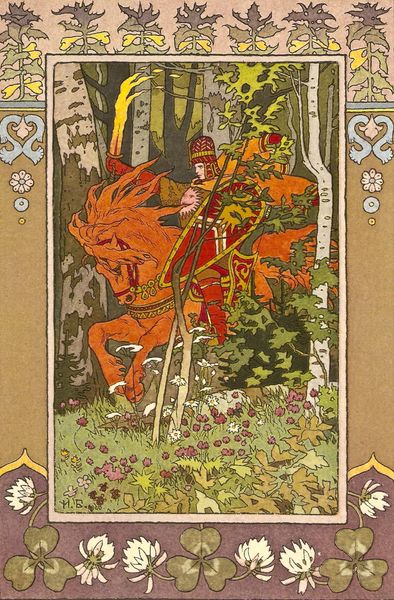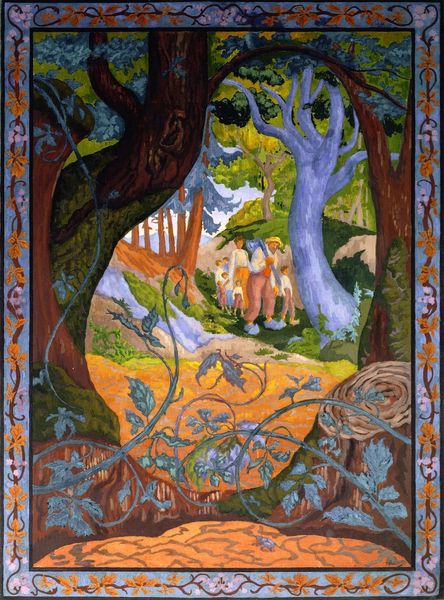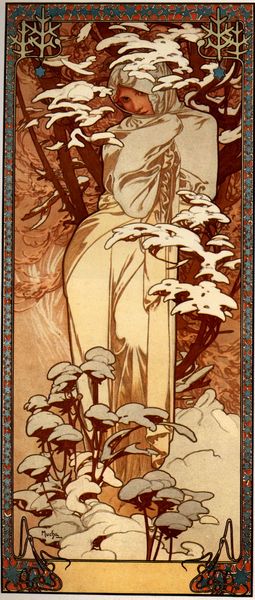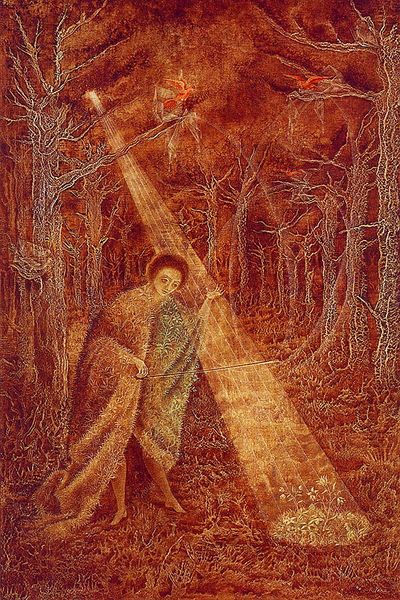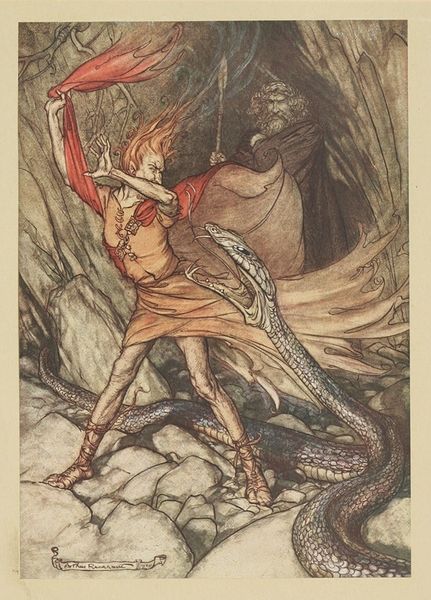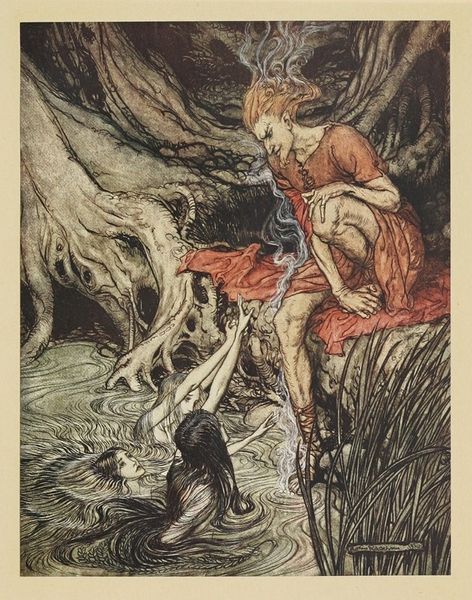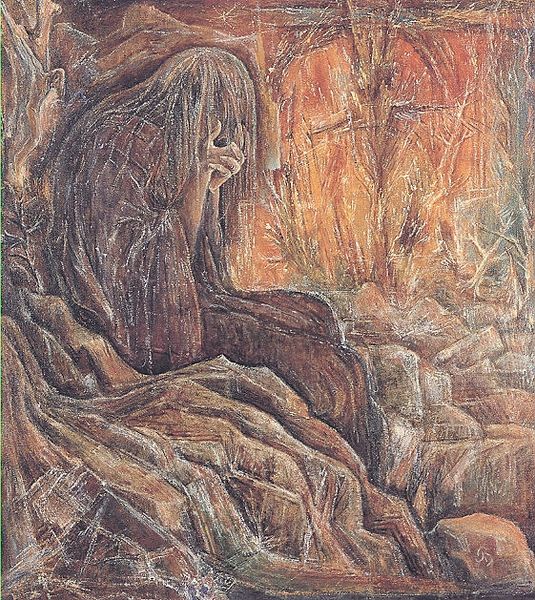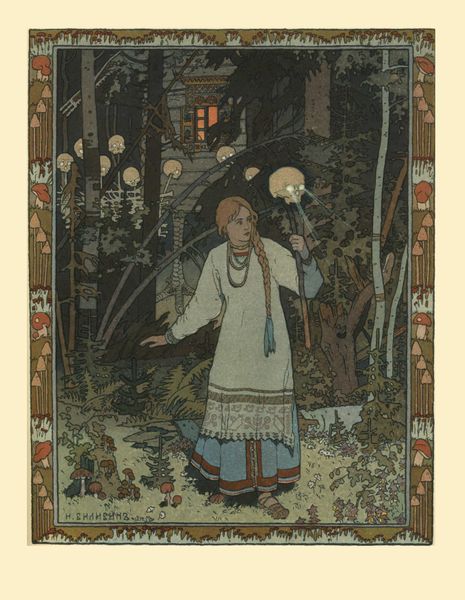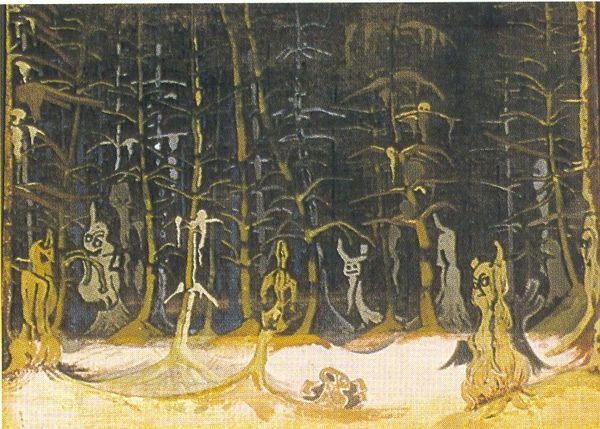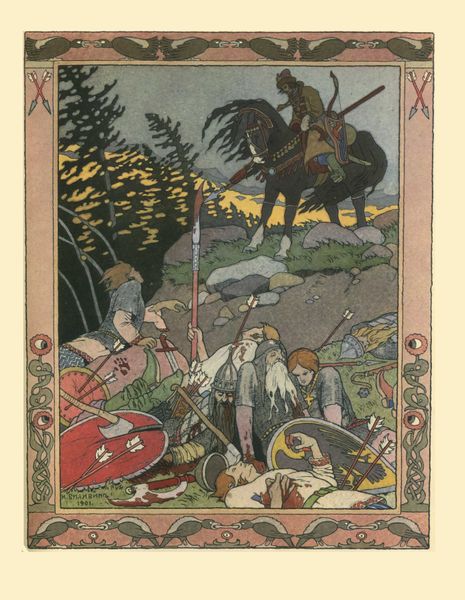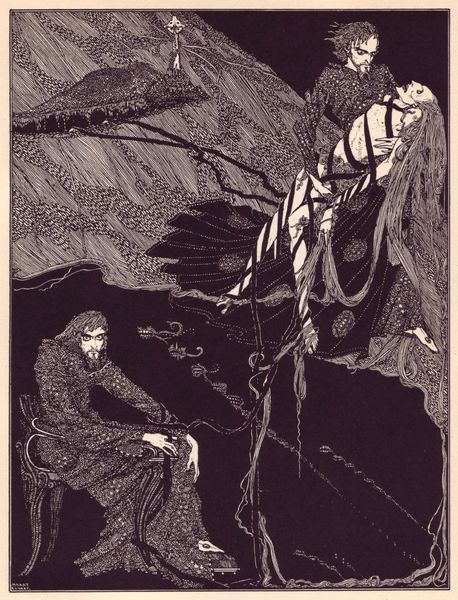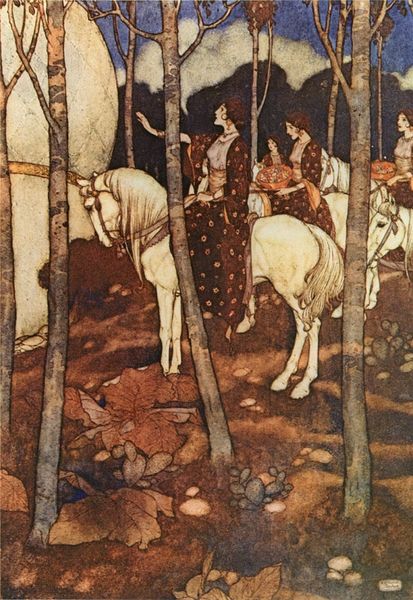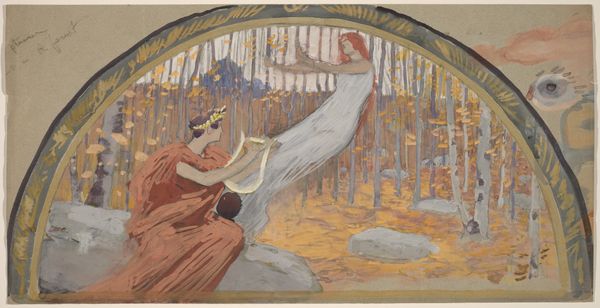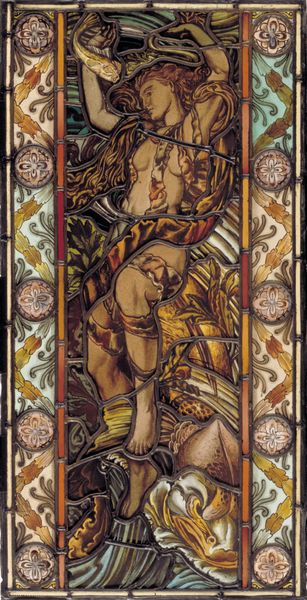
drawing, textile, paper, ink
#
portrait
#
drawing
#
byzantine-art
#
narrative-art
#
landscape
#
textile
#
fantasy-art
#
paper
#
ink
#
folk-art
#
naive art
#
mythology
#
russian-avant-garde
Copyright: Public domain
Ivan Bilibin created this illustration for the fairy tale "Vasilisa the Beautiful" sometime around 1900. His image taps into the rich vein of Russian folklore, depicting Baba Yaga, a supernatural being often portrayed as a fearsome witch. Bilibin was part of the "Mir iskusstva" movement which sought to promote Russian national identity through art. He drew inspiration from traditional folk art, ornamentation and woodcuts. He was designing for a culture undergoing rapid modernization. The turn of the century was a period of rising nationalism, a nostalgic look back at an imagined past. The image creates meaning through visual codes and cultural references. The dense forest, Baba Yaga's dishevelled appearance, all contribute to the sense of mystery and foreboding associated with the character. This fairy tale offered a way to negotiate social anxieties, reflect on cultural values, and reinforce a sense of collective identity. To truly understand art's meaning, it's important to research its social and institutional context. Consider cultural influences, artistic movements, and the artist's own biography. By looking into such things we can better understand its meaning and significance.
Comments
No comments
Be the first to comment and join the conversation on the ultimate creative platform.
